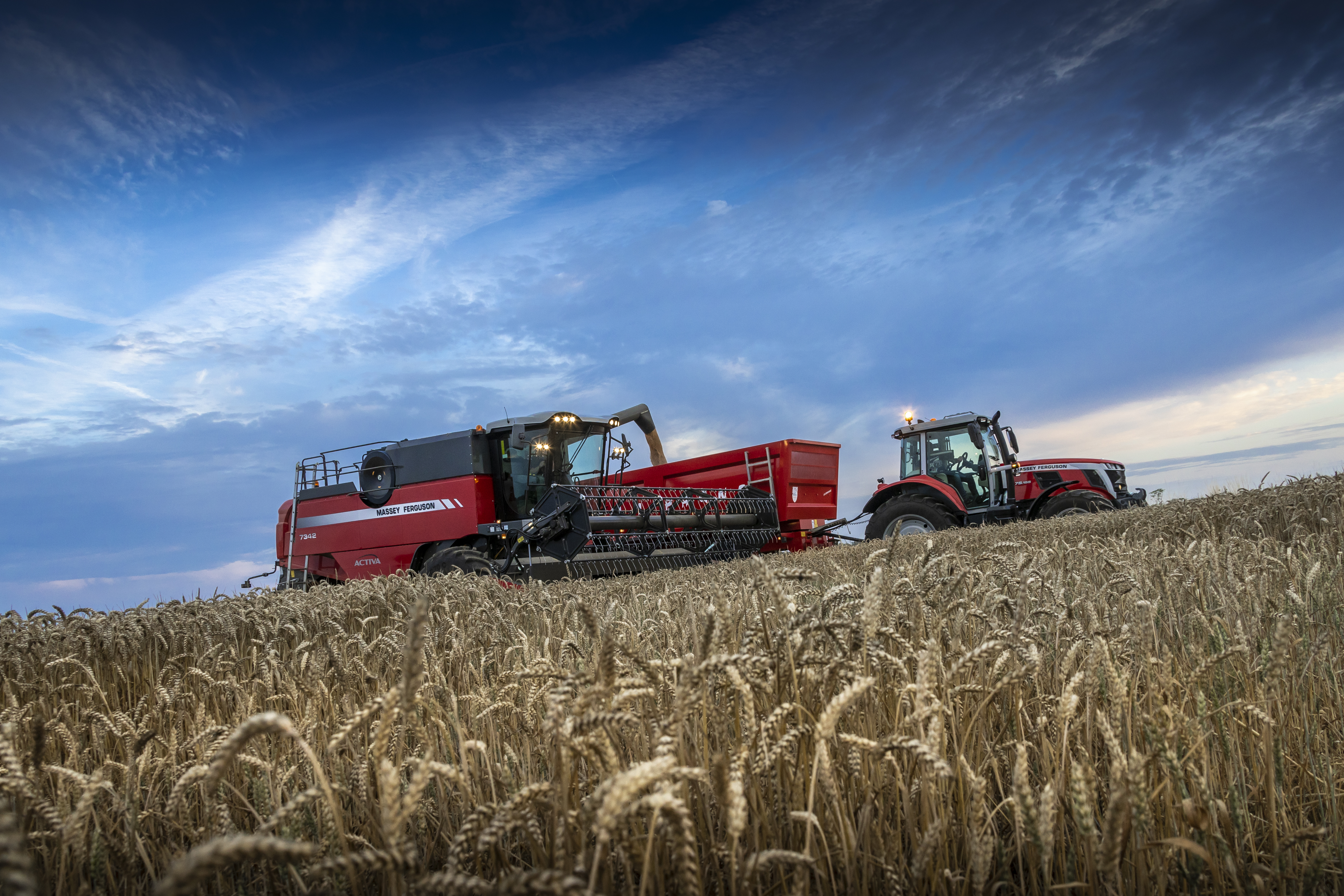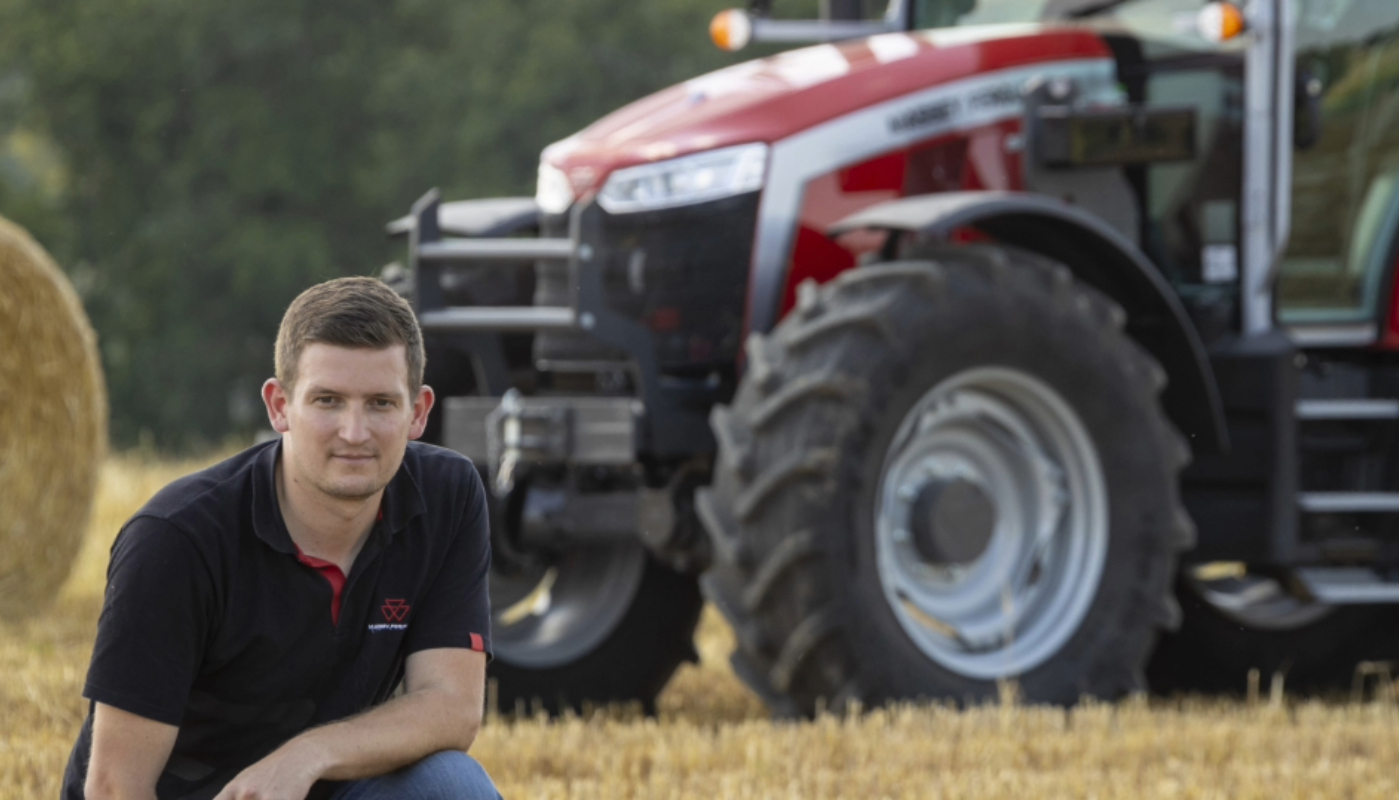Comfortable cows, grassroots marketing and Southern hospitality helped Franks Farms turn a corner when the going got tough.
When Ginny Franks welcomes you into the front office at Southern Swiss Dairy, the creamery at Franks Farm in Waynesboro, Georgia, she might start telling stories about the Brown Swiss cows whose portraits hang on the walls.
“Careful,” says Ginny’s husband, Jimmy. “There’s been more tears shed over cattle than over some family members.” He says it with a smile, but Ginny does tear up when pointing to a photo of Peoni, a beautiful Brown Swiss posing with their daughter, Morgan, who is wearing a wedding dress (the cousin, not the cow, just to be clear). Peoni was lost to eye cancer several years back, and obviously had a place in Ginny’s heart.
Ginny grew up showing Brown Swiss in 4-H and still had an affection for them when she and Jimmy started dairying. Some of the current herd are descendants of her childhood cattle. Some came from animals of higher pedigree that were purchased later, like those of European descent. All are the product of “an extensive embryo transfer program that developed the foundation of our herd here today,” says Jimmy and Ginny’s daughter, Whitney Keith. She and her husband Ryan help run the day-to-day operations of dairy business, while Jimmy and Ginny handle bottling and distribution.
Just steps from the front office of Southern Swiss is a free-stall barn where the cattle hang out before milking. Ryan Keith jokes that it’s like “A.C. for cattle,” and indeed, it seems a few degrees cooler than the office and the bottling facility behind it. Prior to milking, the 190 Brown Swiss cattle can come stand under fans, dine on custom rations that include high-quality feedstuffs raised by the family, and stand on 1½-inch thick rubber mats, unless they prefer to rest in the sand piles.
“That greatly influences production, keeping them comfortable,” says Whitney. And production stays relatively steady, even in the hottest summer months when hot cows tend to produce less. “Right now we’re getting on average 70 pounds per cow per day,” says Ryan, and that’s a high-quality milk, too: The high butterfat content that their customers love. Brown Swiss cattle make more milk on forages, most of which the family grows themselves. But Ryan says their custom rations have some other ingredients, like citrus pulp, that help bump up the quality and the fat content.
Quality is their business, and has been since 2010, when Franks Farm changed its business model from a standard co-op dairy to a premium dairy selling its own exclusive products direct to consumers, restaurants, stores and institutions. “Around 2007, 2008, 2009… most farmers will agree that was a very volatile market,” says Whitney.
Jimmy is more concise. “It just about killed us,” he says.
“Those two or three years were really, really bad,” Whitney agrees. “And so that’s what spurred us.”
Changing a business model doesn’t happen overnight, and Whitney says that was a long process, and that they had to feel their way. “We toured several different farms that had gone in this direction. That helped us figure out where we wanted to go, as far as our product line.”
So did a Brown Swiss herd with a top-line pedigree. Once Franks Farm milk wasn’t pooled and homogenized—business as usual—the quality expectations for a new, exclusive brand of dairy products could be set, and Southern Swiss Dairy was born. They sell “pretty much any kind of fluid milk,” says Whitney, along with half-and-half, heavy cream, and a chocolate milk “that people say is addictive,” she says. Buttermilk, ice cream (20 flavors) and butter (also flavored) round out the offerings. Aside from Southern Swiss, Ryan and Whitney also have a beef business that sells direct to consumer.
“We are able to package our product, bottle our milk and set our price,” says Ryan. “And that has guaranteed a constant income for us.” But not until, Whitney says, they got the word out. That was another process that was mostly word-of-mouth, without any real professional marketing.
Now they have institutional customers all over central and coastal Georgia, including schools, restaurants, stores and coffee shops. “It’s important to our customers,” says Jennifer Jenkins, who runs five specialty coffee shops in Savannah. She recognized as she built her business that working with local farmers was the standard in the specialty coffee industry. “When we started working with Southern Swiss milk, the baristas noticed it immediately,” she says. Besides the taste, little details like “latte art” add to the premium coffee experience, and the foam from the higher fat content holds the art better and longer.
The relationship works both ways. Businesses see the importance of supporting local farmers, too. “We believe it is very important to help ensure that farming in our area is a viable livelihood,” says Kristin Russell, one of the owners of Brighter Day Natural Foods in Savannah, one of Southern Swiss Dairy’s first customers. “A robust local food economy is extra important in uncertain times to help secure food for our community.
“Besides,” she says, “their products taste delicious.”
“The milk is only as good as the feed you’re putting into the animals,” says Ryan. That’s why quality forage is so important to their business, as well as the top-notch genetics that have been a priority for Jimmy and Ginny for decades. “We’re selling a premium product,” says Ryan, “and we know what’s in it.”
The Best Hay in the Barn
Ryan’s shed is all red. His latest purchase completed a Massey Ferguson haying system that Ryan says puts the best hay in the barn.
“We purchased a 4180V baler,” he says. “I wanted that baler since they started making it.” Besides the new silage baler, the farm also runs a Massey Ferguson 1383 Disc Mower Conditioner, an RK Series rotary rake, and pulls it all with a MF 5712SL tractor.
Talk about a winning combination, especially if quality hay for a top-notch herd is your goal. Ryan says the farm’s products are only as good as the feed he puts in the cattle, so the investment in the best equipment made sense.
“We bale a lot of Coastal Bermuda hay, and I think that mower cuts the Coastal more clean, more level,” he says. The added bonus of the conditioning system on the 1383 Disc Mower crimps the hay and “speeds up our drying time,” he says.
The 4180V completes the process and helps him get a clean, tight bale. “The main goal is to get as much oxygen out of that bale as possible,” he says, to preserve feed quality and make for safer storage. “Actually, the first bales I made with that baler, we baled them so tight that the hay spear wouldn’t go in them,” he laughs. He has the hang of it now, and says “it makes just the prettiest bales you’ve seen.”
Not just pretty, but practical; getting a tighter bale means less storage space and less time in the field. “For every three bales I’m making with this baler, the other (manufacturer’s) baler would make four,” he says. “I’m using less net wrap, less time in the field, less storage,” he says. “Plus, the back door on this baler is just super fast. You can have a bale dumped and closed and start it back before you can have the back door open on another competitor’s baler.”
The 5712SL tractor is a perfect match, “but also it’s big enough to use on the row crop side,” he says. “The fuel efficiency has been a big thing.”
Ryan is discovering more about the versatility of his setup every day, baling wheat straw, baleage and dry hay as well. And, he’s pushing it in less-than-ideal situations, with good results. “I would kinda cheat a little bit, get longer days, so I could bale wet,” he says. “With this baler, I baled some stuff that was short and wet that the (other manufacturer’s) baler would’ve never baled.”
While he says he appreciates the versatility of the equipment, it’s the baling that sold him. “I usually do all the baling because I want to. I enjoy it. I want to have the best hay in the barn, and the equipment that I’ve got through Massey has really helped me achieve that goal.”























Share